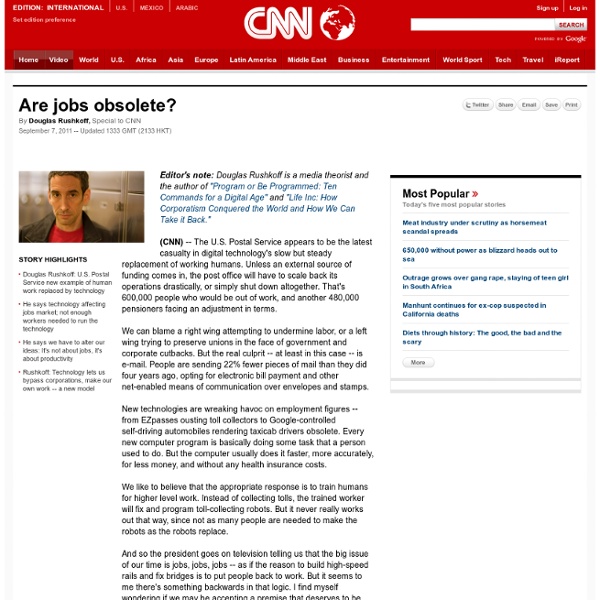Are jobs obsolete?

Jeremy Lin and the political economy of superstars
Cambridge, MA - The biggest news around this city in recent weeks has been Jeremy Lin, the Harvard economics graduate, who has shocked the National Basketball Association by rising seemingly overnight from "nowhere" to become a genuine star, leading a losing New York Knicks team to an unlikely string of victories. Lin's success is delicious, partly because it contradicts so many cultural prejudices about Asian-American athletes. Flabbergasted experts who overlooked Lin have been saying things like "he just didn't look the part". Lin's obvious integrity and graciousness has won him fans outside the sport as well. I confess to being a huge Lin fan. What amazes me is the public's blasé acceptance of the salaries of sports stars, compared with its low regard for superstars of business and finance. Yet many of these same fans would almost surely argue that CEOs of Fortune 500 companies, whose median compensation is around $10m, are ridiculously overpaid.
Tim Geithner: Financial Crisis Amnesia
Four years ago, on an evening in March 2008, I received a call from the CEO of Bear Stearns informing me that they planned to file for bankruptcy in the morning. Bear Stearns was the smallest of the major Wall Street institutions, but it was deeply entwined in financial markets and had the perfect mix of vulnerabilities. It took on too much risk. It relied on billions of dollars of risky short-term financing. And it held thousands of derivative contracts with thousands of companies. These weaknesses made Bear Stearns the most important initial casualty in what would become the worst financial crisis since the Great Depression. In the spring of 2008, more Americans were starting to face higher mortgage payments as teaser interest rates reset and they could no longer refinance out of them because the value of their homes stopped rising—the leading edge of a wave of foreclosures and a terrible fall in house prices. These problems were partly the result of amnesia. Mr.
Related:
Related:



